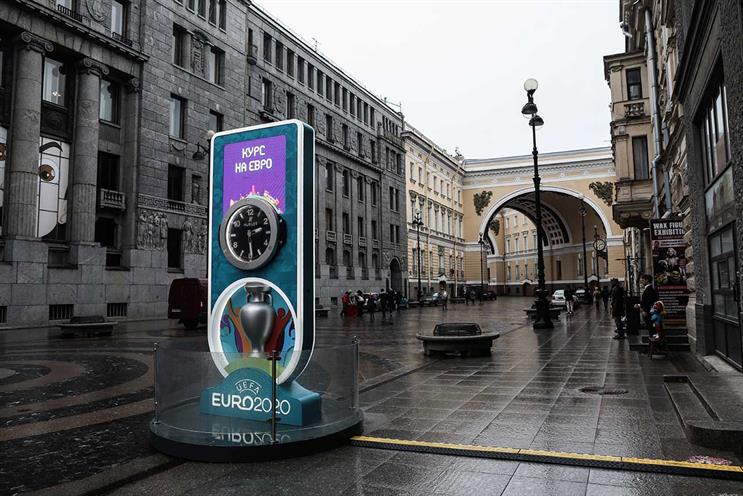Covid-19 is having a major impact across the entire landscape of global football. Across the world, leagues and fixtures have been suspended indefinitely.
These vital precautions have been taken to ensure that football matches do not become explosive Petri dishes of contamination, protecting not just the thousands of fans watching, but the players too. While the measures are wholly understandable, they do come with significant consequences for anyone connected to the beautiful game.
From fans potentially missing out on witnessing their teams make history to lower-level clubs losing out on much-needed match-day revenue to the logistical issues of reconfiguring the football calendar to complete domestic and continental competitions while trying to accommodate the small matter of Euro 2020, the entire football ecosystem is looking very fragile.
For the brands involved in football, this unprecedented scenario has created a huge level of uncertainty.
Today (Tuesday), Uefa announced that Euro 2020 will be moved back by 12 months to free up a summer window for the remainder of the club and European competitions to be completed.
Based on this, what are the key areas that brands should be considering when navigating this unique scenario in a way that can not only elevate their brand but help the football community as a whole?
Think in phases
As the football calendar is recalibrated, it is vital to step back and consider the next six to 18 months of the game through the lens of specific phases and not "the season".
We are currently in a no-football phase; summer football will, for the first time, comprise domestic and European club competitions, not Euro 2020; and summer 2021 could have back-to-back men’s and women’s Euros happening for the first time. Defining your brands’ approach and position across these phases will drive a clarity of direction within an unprecedented climate.
For example, Leeds United simulated their cancelled match against Cardiff on Fifa 20, reporting on their social media channels as if it were a real match in order to fill the void of no live games.
Meanwhile, Leyton Orient started an international 128-team Fifa 20 online gaming tournament called #ultimatequaranteam to help keep fans entertained during the break in play.
Adopt a fan-first mindset
Putting the fan at the heart of your thinking, through a deep understanding of their needs and behaviours across the phases outlined above, is a huge opportunity to build effective and long-term advocacy for your brand. Ensuring feedback loops are in place to understand audience sentiment both currently and in the future will allow your brand to craft and tailor campaigns, activations and experiences that add genuine value to the lives of fans.
Consider the opportunities to give back
The effect of coronavirus is likely to have deeper, longer-term ramifications on the economics of football – especially for clubs (and their local communities) in the lower reaches of the game. Taking inspiration from the likes of football charity Common Goal, what can your brand do to help alleviate the financial issues that smaller clubs and their workforce might face?
How could your brand help local charities or communities supporting elderly fans at a time when extended isolation and loneliness will become a bleak reality, much like Watford FC are doing with their Hornets at Home initiative?
Fast-track innovation
Adopt a "future is now" mindset for your brand. Never has there been a more pertinent moment to implement innovative solutions that can rewrite the playbook. Look at where your advertising, experiential and media spend is going and work with experts and partners that can think beyond the traditional to invest in areas that can break new ground.
Brands in football should look at the world of music, such as Defected Records, which will be running a virtual festival that will stream live on YouTube and Facebook, or to Netflix, which is enabling its audience to take part in long-distance watch parties.
What are the innovations in football that have the longevity to become integral to the fan experience in a post-outbreak world? What role could an emerging platform such as TikTok play in the fan experience?
It is likely that we will look back at the outbreak of Covid-19 as a key juncture in the evolution of football as a whole. In these uncertain times, what is certain is that football will find a way of bouncing back and all of us have a role to play in that.
Paolo Nieddu is global head of strategy at Copa90
Picture: Getty Images


